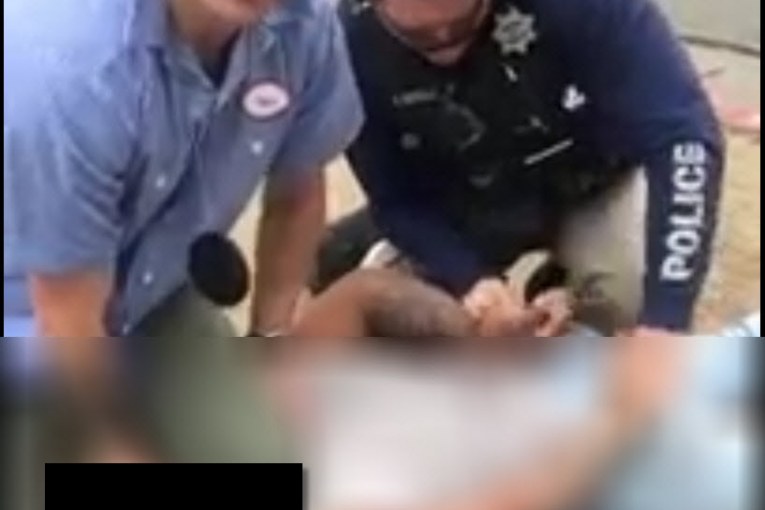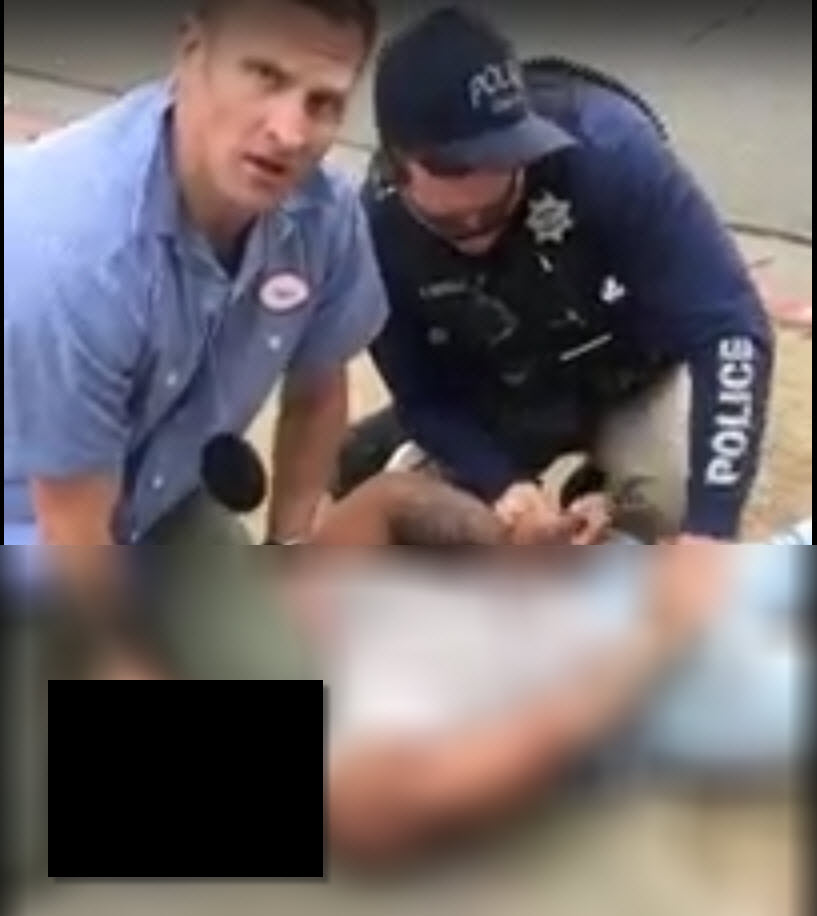

They will say that the world of 2008 was another time and another council – and they would be right. But for me, it was not only not that long ago but it profoundly shaped my distrust of city governance at the time.
The background is this: in June of 2008, the Yolo County Grand Jury came out with a report that blasted the Davis firefighters’ union for, among other things, favoritism and creating a hostile work environment. Of course the media focused on the most unseemly detail – the specter of firefighters getting drunk and sleeping it off at the fire station.
The city made the decision to ask the Police Ombudsman, Bob Aaronson, to conduct the independent investigation. He completed his work some time in November and then the city had a decision to make – a decision that they apparently hadn’t thought through – on what to do with the report.
What happened in early December was the single most jaw-dropping moment in my entire tenure of running the Vanguard – the council actually voted 3-2 not to read the report, but rather rely on the city manager at the time, Bill Emlen, to summarize it.
As Councilmember Stephen Souza said, “I don’t need (to read) all fifty pages, I just don’t.”
The Day The Council Voted to Cover Up The Truth From the Public
It would take more than five years and three lawsuits, but finally, in 2014, we were able to get the full report released to the public.
I post this as a cautionary tale. I have no doubt that this current council – which has done everything differently in handling the Picnic Day incident than the council from 2006 did in handling similar contraries – will not do that.
But at the same time, I am a little concerned about how the city plans to unveil the McGregor Scott report to the public – and I get the feeling this week that no plans were actually made on how the report would be released and what the public would be allowed to see.
As most people reading this will recall, on April 22 around 3:30 pm, three Davis police officers were involved in an altercation with a number of individuals who had gathered at the corner of Russell Boulevard and College Park. Ultimately, five individuals were arrested and pled to reduced charges.
Because of public controversy, the city originally named former Sacramento Sheriff John McGinness to head the investigation, however, he quickly bowed out after the Vanguard revealed he had made remarks that African Americans were better off before the 1964 Civil Rights Act.
The city then named McGregor Scott to replace him. As of last week, the report had been received by Police Chief Darren Pytel. At that point, he indicated that it was a lengthy report and he needed to be able to go  through it in order to digest it. He expected that the report would be released in some form before the end of the year – which would probably indicate this week or next.
through it in order to digest it. He expected that the report would be released in some form before the end of the year – which would probably indicate this week or next.
When the Vanguard reached out to the city manager over the weekend, Mike Webb had yet to see the report – nor had Mayor Robb Davis on Monday when the Vanguard reached out to him.
From the start the city has been vague about what would be released to the public – once again, that is a cause for concern as the city manager, just as the city manager did in 2008, failed to anticipate the release of the report and in what form it would be released. In 2008, that led to the council making an ill-advised decision for themselves to not even read the report.
At the same time, from the start the police chief, the former city manager and the mayor have given assurances that the public will find out the results of the investigation. The question again is the form it will take.
Part of the release of this is complicated by two factors. One is new personnel rules governing the release of records that would be deemed to be personnel files. In addition, the 2006 Copley Press decision by the California Supreme Court held that records of sustained misconduct charges are confidential and may not be disclosed to the public.
The decision prevents the public from learning the extent to which police officers have been disciplined as a result of misconduct. Prior to that, Penal Code section 832.7 prevented public access to citizen complaints held by the employing agency, which meant that internal affairs records were confidential, but records of appeals to outside agencies were open to the public.
As the ACLU noted in a 2007 primer: “Copley Press has effectively shut off all avenues for the public to learn about misconduct involving individual police officers, such as excessive force and dishonesty; officer-involved shootings; patterns of misconduct and leniency; previous discipline for misconduct by another agency; and even the identity of officers in misconduct cases.”
So what should the city do here?
I find it instructive to look at the Kroll Report from 2012 following the Pepper Spray Incident. Here was a similar case – high profile, and the university hired outside investigators, Kroll, to investigate the matter. They turned in a lengthy report, but redacted the names of the officers.
That is what I suggest that the city do in this case. The city council should be able to read a full and unredacted report. I certainly believe that all five members of the city council have been conscientious and supportive of the issues involved here and I ultimately trust they will ensure that if there is wrongdoing on the part of the police, it will be handled in a manner that is appropriate.
However, with that said, there is enough community angst and distrust that I think a full reading of the report by the public is warranted and that the city should be as transparent as they possibly can within the letter of the law.
—David M. Greenwald reporting
We Have Five Days to Raise $750 – Please Donate to the Vanguard


David
I think that you have this one right. I want to congratulate you on your role & persistence in reporting on this issue over time in part facilitating appropriate actions on the part of the police and city council in dealing with this difficult issue.
People will no doubt debate the findings of the report, but transparency is an essential element for trust.
So is being unbiased when assessing the report.
We actually already have an oversight group… for significant concerns… it’s called the Yolo County Grand Jury.
Hope the more local option does not get into micro-managing of every action taken by PD that ruffles someone’s feathers/egos…
That’s what I’m concerned about too, especially if any oversight committee is manned with anti-cop social activists.
I really don’t think there are a lot of people who are anti-cop
But, you must admit, there are a lot of folk interested in micro-managing… others…
I believe there are, but either we don’t need people that get their feathers ruffled (where did I read that?) over every small incident.
The Grand Jury is not set up to that
That’s incorrect… if the Picnic Day incident had been flagged, they could have considered it the following term… if there is a ‘pattern’, they often do… usually based on citizen complaints/concerns…
Hell, they questioned/investigated the City’s contribution to the traffic signal @ Valdora/Cowell… I know because I was called to testify!
I disagree. There’s a reason why Grand Juries are not used as police oversight bodies. Other than the efforts by Grand Juries to indict officers for crimes, find me an example where one has been used to investigate a police incident.
Cite me one example when a citizen asked them to… and they (GJ) didn’t follow up…
Here’s an example where the grand jury investigated the police oversight system: https://www.marincounty.org/~/media/files/departments/gj/reports-responses/2015/law-enforcement-citizen-complaint-procedures.pdf?la=en
That strikes me as more in line with what a grand jury has the authority to do
http://www.yolocounty.org/business/community/grand-jury#Requesting a Grand Jury Investigation
Our posts appear to have crossed… see my link. We can agree to disagree… suggest that…
“Hope the more local option does not get into micro-managing of every action taken by PD that ruffles someone’s feathers/egos…”
Usually, that only happens when the level of corruption attracts federal attention.
“That’s what I’m concerned about too, especially if any oversight committee is manned with anti-cop social activists.”
So why don’t you get involved? A pro-cop sycophant to balance out all the anti-cop social warriors. Of course most real people fall somewhere between those two extremes. Transparency is probably not possible because the police still control the view.
From reading much of your anti-cop rhetoric over the years do you feel you would fall between those two extremes?
The comment section of the Vanguard would be much more useful and productive if various participants would stop sniping at each other. Please focus on the issues at hand and avoid the personal conflicts.